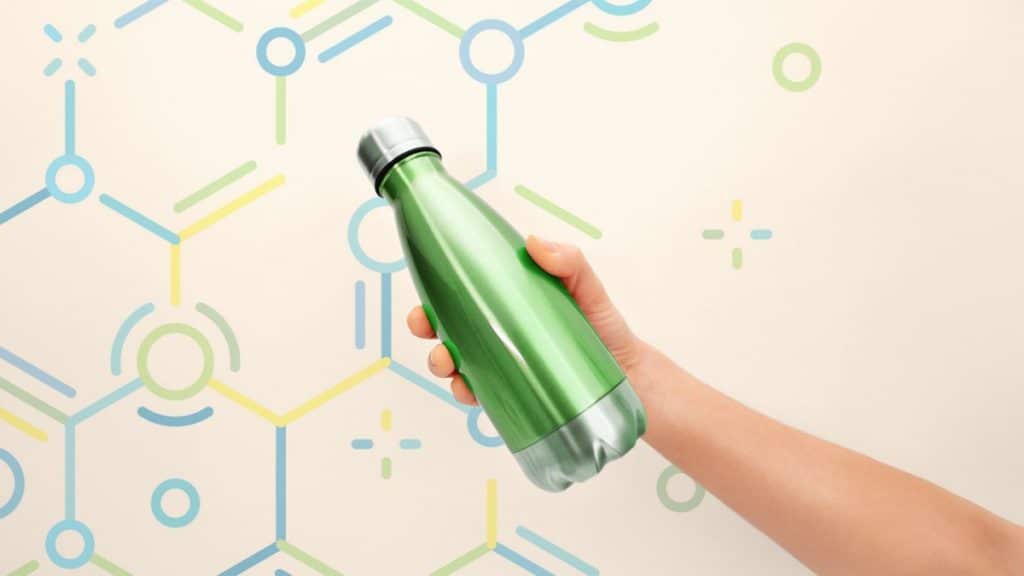One of the latest trends in the wellness and health industry is hydrogen water bottles. These bottles add molecular hydrogen to regular drinking water, which has caught attention for its possible health benefits. From boosting athletic performance to having anti-aging effects, the claims around hydrogen water make it an interesting topic for both consumers and researchers. This growing interest highlights the need to better understand the science behind it, making it a relevant subject for discussion.
While many articles focus on the general benefits of hydrogen water, there’s a need to look more closely at the science and current research. This overview will explain what hydrogen water is, starting with its basic chemistry and how the infusion process works. We’ll also take a closer look at the health claims, review the current scientific findings, and discuss where research might be headed. By the end, readers will have a clear picture of what hydrogen water bottles offer and what still needs to be explored.
The Basics of Hydrogen Water
Hydrogen water is regular water with added molecular hydrogen (H2) gas. This changes its makeup because normal water (H2O) only has hydrogen atoms bonded to oxygen, without any free hydrogen. To make hydrogen water, hydrogen gas is usually added through a process called electrolysis, where electricity splits water molecules to release hydrogen. This extra hydrogen is said to act as a strong antioxidant, helping to neutralize harmful free radicals in the body.
Unlike tap water, hydrogen water contains this additional hydrogen, and some believe it may reduce inflammation and oxidative stress, though more research is needed to confirm these benefits. While hydrogen water changes the basic chemistry of regular water, its potential health effects are still being explored.
Mechanism of Hydrogen Infusion
Hydrogen infusion techniques mainly use electrolysis, where an electric current splits water into hydrogen and oxygen. Electrolyzers are used to generate hydrogen, which is then added to the water. This method enriches the water with hydrogen and ensures it’s evenly mixed for better effectiveness.
Other methods include chemical reactions with metals like magnesium, which release hydrogen when they come into contact with water, and using high pressure to force hydrogen into the water. Each method has its pros and cons: electrolysis is efficient and commonly used, while chemical and high-pressure methods offer alternatives for different needs.
Health Claims and Potential Benefits
Hydrogen-infused water has attracted attention for its potential health benefits, though opinions remain divided. Proponents claim it acts as a powerful antioxidant, potentially reducing oxidative stress and inflammation in the body by neutralizing harmful free radicals. This, they believe, could offer protection against chronic diseases and slow aging.
Some research suggests it may improve athletic performance and muscle recovery by boosting cellular energy production and reducing fatigue. However, the scientific community is still debating its effectiveness, as findings are mixed. While some users report noticeable benefits like increased energy and quicker recovery, others remain unconvinced, highlighting the need for more thorough research and discussion on hydrogen water’s actual impact.
Current Scientific Understanding
The scientific understanding of hydrogen water is still developing, with some promising findings and many questions left unanswered. Research so far shows that molecular hydrogen has strong antioxidant properties, which could help reduce oxidative stress and inflammation. Some studies suggest it may improve certain health conditions, but the evidence is still limited and needs more confirmation.
Although the potential of hydrogen water looks promising, more large-scale studies are needed to back up these early findings. Questions about the best dosage, long-term effects, and when hydrogen water is most effective remain unclear, so further research is needed before reaching a scientific consensus.
Future Directions in Hydrogen Water Research
Future research on hydrogen water holds many exciting possibilities. Scientists are eager to study its long-term health effects and potential therapeutic uses, especially after promising early results. Larger and more thorough clinical trials will be needed to confirm these benefits in different populations. Improvements in hydrogen infusion technology could also make hydrogen water more accessible and effective.
For consumers, this could lead to more trustworthy products with proven health benefits. At the same time, researchers may discover more about the molecular processes involved. As our knowledge grows, hydrogen water might become a well-supported health aid or face closer scrutiny. This research process will continue to shape how we understand and use hydrogen water in the future.
The exploration of hydrogen water reveals a promising but still progressing field within wellness and health. While initial findings suggest potential benefits such as enhanced antioxidant effects and improved athletic performance, more extensive research is required to validate these claims. The various infusion techniques and health claims contribute to an intriguing narrative, yet the scientific community seeks clearer answers. As research progresses, it may either confirm hydrogen water’s advantages or prompt further scrutiny. Staying informed about ongoing studies will be key for understanding the true impact of this innovative hydration option.
